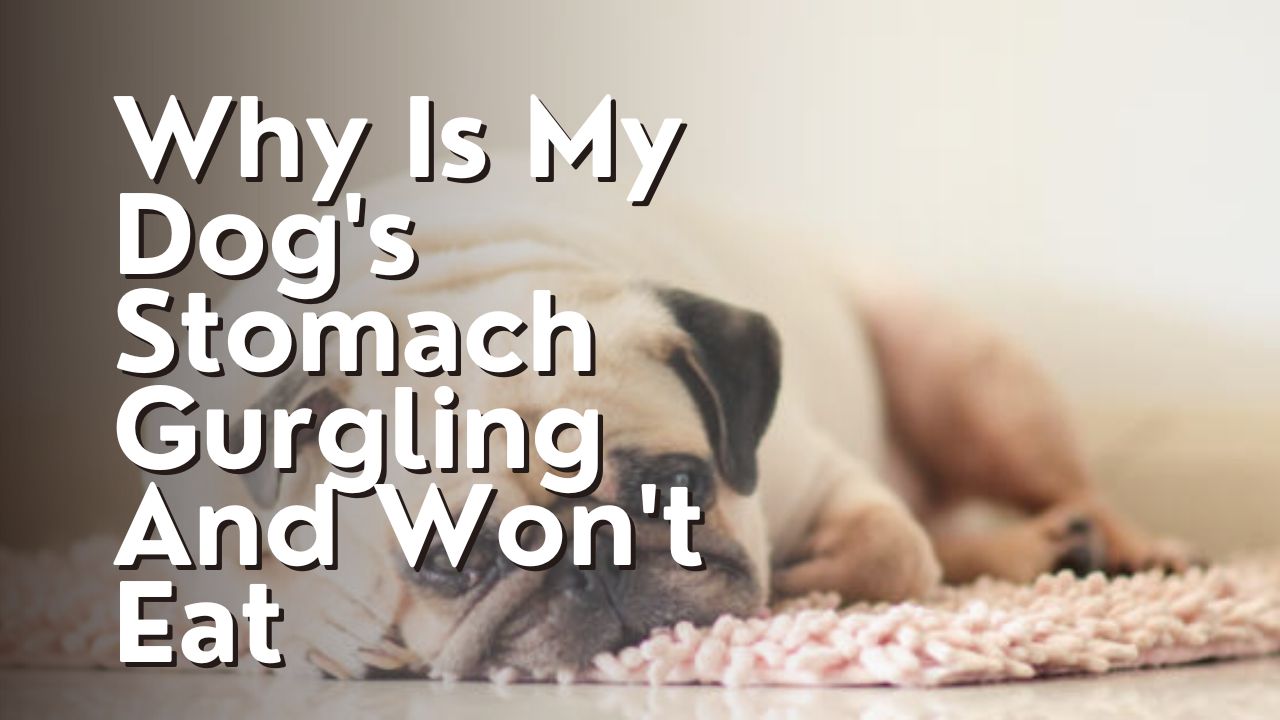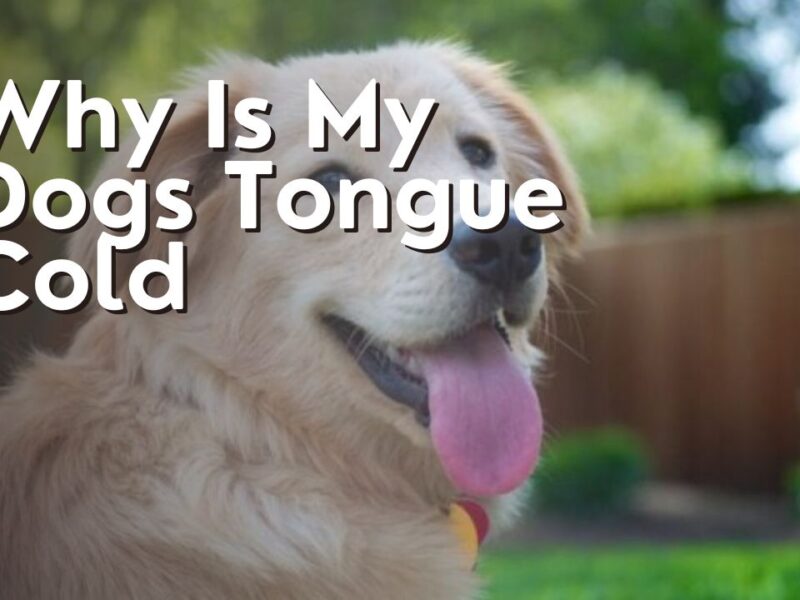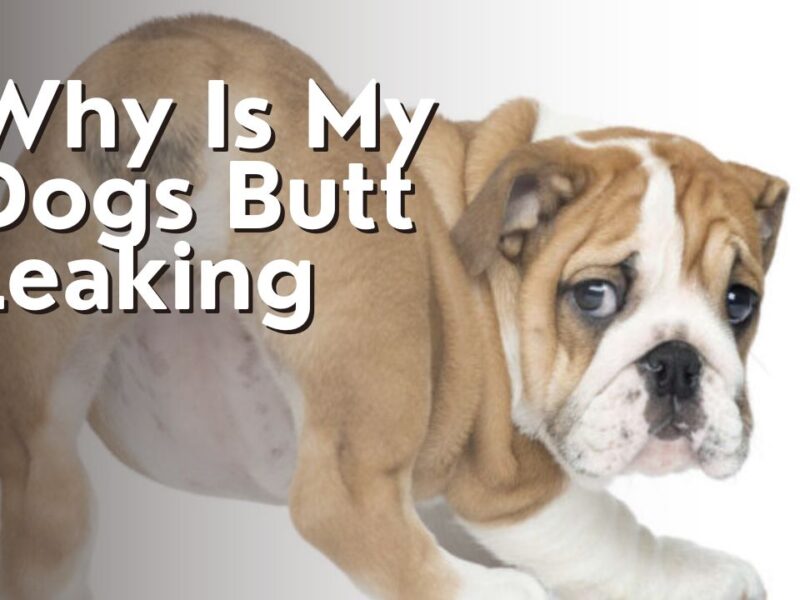Hey there! Have you ever wondered why your furry friend’s stomach is making those strange gurgling sounds and they’re refusing to eat? Well, I certainly have. As a dog owner myself, it can be quite concerning when our beloved pets start experiencing these symptoms.
But fear not, because in this article, we’ll explore the common causes behind a dog’s stomach gurgling and loss of appetite.
We’ll delve into various factors that could be contributing to these issues, ranging from minor digestive disturbances to more serious underlying health conditions. Understanding why your dog’s stomach is gurgling and why they’re not eating is crucial in ensuring their well-being.
We’ll also discuss when it might be necessary to seek veterinary care and provide some helpful home remedies and care tips to try at home.
So, grab a cup of coffee, get cozy with your pup, and let’s dive into the world of doggy stomachs and appetites. Together, we’ll explore ways to maintain your dog’s health and hopefully answer the question, ‘Why is my dog’s stomach gurgling and won’t eat?’
Common Causes of Stomach Gurgling in Dogs
One of the most common reasons for a dog’s stomach gurgling and refusal to eat is the consumption of spoiled food. Dogs have sensitive stomachs, and consuming spoiled food can lead to an upset tummy and digestive issues.
Another common cause of stomach gurgling in dogs is eating too quickly. When dogs eat too fast, they tend to gulp down air along with their food, causing their stomachs to gurgle. This can also lead to bloating and discomfort.
Additionally, stress and anxiety can contribute to stomach gurgling and loss of appetite in dogs. Just like humans, dogs can experience stress and it can manifest in their digestive system. It’s important to create a calm and safe environment for our dogs to help alleviate their stress.
Lastly, certain medical conditions such as gastritis or gastrointestinal infections can cause stomach gurgling and decreased appetite in dogs. If your dog’s stomach gurgling persists or if you notice any other concerning symptoms, it’s best to consult with a veterinarian to rule out any underlying health issues.

Understanding Loss of Appetite in Dogs
Feeling a loss of appetite in your furry friend can be concerning, but understanding why it happens is key. Here are four possible reasons why your dog may be experiencing a loss of appetite:
- Illness or Pain: Dogs often lose their appetite when they are feeling unwell or in pain. It could be due to an underlying health issue such as an upset stomach, dental problems, or even an infection. If your dog’s loss of appetite is accompanied by other symptoms like vomiting or lethargy, it’s important to consult a veterinarian.
- Stress or Anxiety: Dogs can be sensitive creatures, and stress or anxiety can affect their appetite. Major changes in their environment, such as moving to a new house or the addition of a new pet, can cause them to feel unsettled and lose interest in food.
- Medication Side Effects: Some medications can cause a decrease in appetite as a side effect. If your dog has recently started taking any new medications, it’s worth checking the label or consulting your vet to see if loss of appetite is a known side effect.
- Age-related Changes: Older dogs may experience a decrease in appetite due to age-related factors such as a slower metabolism or dental issues. It’s important to provide them with a balanced diet and consult a vet to address any potential health concerns.
Remember, if your dog’s loss of appetite persists for more than a day or is accompanied by other worrisome symptoms, it’s always best to consult a veterinarian for proper diagnosis and treatment.
When to Seek Veterinary Care
When it comes to my dog’s health, there are a few key points that help me determine when it’s time to seek veterinary care.
Firstly, if my dog is experiencing persistent or severe symptoms such as a loss of appetite, stomach gurgling, and refusal to eat, I know it’s important to reach out to my vet for guidance.
Secondly, any sudden changes in my dog’s behavior or energy levels can also be a cause for concern and warrant a trip to the vet.
Lastly, if I notice any other concerning symptoms like vomiting, diarrhea, or difficulty breathing, I won’t hesitate to seek veterinary care to ensure my dog’s well-being.
Persistent or Severe Symptoms
If your furry friend’s stomach is gurgling persistently and they refuse to eat, it might be time to consult a veterinarian. Persistent or severe symptoms can indicate a more serious underlying issue that requires immediate attention.
When your dog’s stomach is consistently making noises and they show no interest in food, it could be a sign of gastrointestinal problems, such as an obstruction or inflammation. These conditions can be painful and potentially life-threatening if left untreated.
Additionally, if your dog is experiencing other concerning symptoms like vomiting, diarrhea, or abdominal pain, it is crucial to seek veterinary care promptly. Remember, as pet owners, we are responsible for their wellbeing and should never hesitate to reach out to a professional when our furry companions are not feeling well.
Changes in Behavior or Energy Levels
Experiencing a sudden shift in behavior or energy levels can be a clear indication that something may be off with your furry companion. If your dog’s stomach is gurgling and they refuse to eat, it is important to pay attention to any changes in their behavior or energy levels.
Is your usually active and playful pup suddenly lethargic and uninterested in their favorite activities? Are they sleeping more than usual or showing signs of discomfort? These changes could be a sign of underlying health issues or discomfort.
It is crucial to consult with your veterinarian to determine the cause of these changes and find the appropriate treatment. Remember, observing and addressing changes in behavior or energy levels can help ensure the well-being of your beloved pet.
Other Concerning Symptoms
Noticing other concerning symptoms in your furry friend? In addition to changes in behavior or energy levels, there are several other signs that may indicate something is wrong with your dog.
One common symptom is vomiting, which can often be accompanied by diarrhea. These digestive issues may be causing your dog’s stomach to gurgle.
Furthermore, a loss of appetite is another worrisome sign. If your dog is refusing to eat or showing a decreased interest in food, it could be a sign of an underlying health problem.
Additionally, if you notice your dog has a distended or bloated stomach, it is crucial to seek veterinary attention as it may indicate a serious condition such as gastric dilatation-volvulus (GDV).
Other concerning symptoms to look out for include excessive thirst, frequent urination, lethargy, weight loss, and pale gums.
Home Remedies and Care Tips
To help alleviate your dog’s stomach gurgling and lack of appetite, try incorporating some simple home remedies and care tips into their routine. Here are a few ideas to consider:
- Adjust their diet: Start by feeding your dog small, frequent meals of easily digestible food. Consider switching to a bland diet of boiled chicken and rice until their stomach settles. Avoid feeding them table scraps or foods that may be hard to digest.
- Ensure proper hydration: Make sure your dog has access to fresh water at all times. You can also try adding a bit of low-sodium chicken broth to their water bowl to encourage them to drink.
- Provide a quiet environment: Dogs can be sensitive to stress and noise, which can worsen their stomach issues. Create a calm and quiet space for your dog to relax in, away from loud noises or other potential stressors.
- Encourage rest and relaxation: Allow your dog plenty of time to rest and recover. Avoid strenuous exercise or activities that may worsen their symptoms.
- Monitor their condition: Keep a close eye on your dog’s symptoms and behavior. If their stomach gurgling and lack of appetite persist or worsen, it’s important to consult with a veterinarian for a proper diagnosis and treatment plan.
Remember, while these home care tips may provide temporary relief, it’s crucial to seek veterinary advice if your dog’s condition doesn’t improve or if they show any other concerning symptoms.

Preventive Measures and Maintaining Your Dog’s Health
Creating a routine of regular exercise, balanced meals, and routine vet check-ups can help ensure your furry friend stays healthy and happy. When it comes to preventing stomach gurgling and loss of appetite in dogs, there are a few key steps you can take.
First and foremost, make sure your dog is getting enough exercise. Daily walks or playtime can help keep their digestive system running smoothly.
Additionally, feeding your dog a balanced diet that includes high-quality dog food is crucial. Avoid giving them table scraps or foods that are known to upset their stomachs. It’s also important to establish a regular feeding schedule and stick to it. This helps regulate their digestion and prevents hunger-induced gurgling.
Lastly, don’t forget about routine vet check-ups. Regular visits to the veterinarian can catch any potential health issues early on, preventing more serious problems down the line.
By following these preventive measures and maintaining your dog’s overall health, you can minimize the chances of experiencing stomach gurgling and appetite loss.
Frequently Asked Questions
Can stomach gurgling in dogs be a sign of a serious underlying health condition?
Stomach gurgling in dogs can be a sign of a serious underlying health condition. It’s important to consult a veterinarian to determine the cause and provide appropriate treatment for your furry friend.
How long can a dog go without eating before it becomes a cause for concern?
If a dog doesn’t eat for more than 24 hours, it’s a cause for concern. Lack of appetite can be a sign of underlying health issues, so it’s important to consult a veterinarian.
Are there any over-the-counter medications that can help alleviate stomach gurgling in dogs?
There are over-the-counter medications that can help alleviate stomach gurgling in dogs. It’s best to consult with a veterinarian to determine the most appropriate medication for your dog’s specific situation.
Can stress or anxiety cause stomach gurgling in dogs?
Stress or anxiety can indeed cause stomach gurgling in dogs. Just like humans, dogs can experience digestive issues when they are feeling anxious or stressed. It’s important to address the underlying cause of their stress to alleviate the symptoms.
Is it normal for a dog’s appetite to fluctuate from day to day?
Yes, it is normal for a dog’s appetite to fluctuate from day to day. Factors like temperature, activity level, and overall health can affect their hunger.
Conclusion
In conclusion, when my dog’s stomach is gurgling and he won’t eat, it’s important to address the underlying causes and seek veterinary care if necessary.
Loss of appetite can be a sign of various health issues, and home remedies may not always be sufficient. By taking preventive measures and maintaining my dog’s overall health, I can help prevent these issues from occurring in the future.
Remember, the well-being of our furry friends should always be a top priority.


